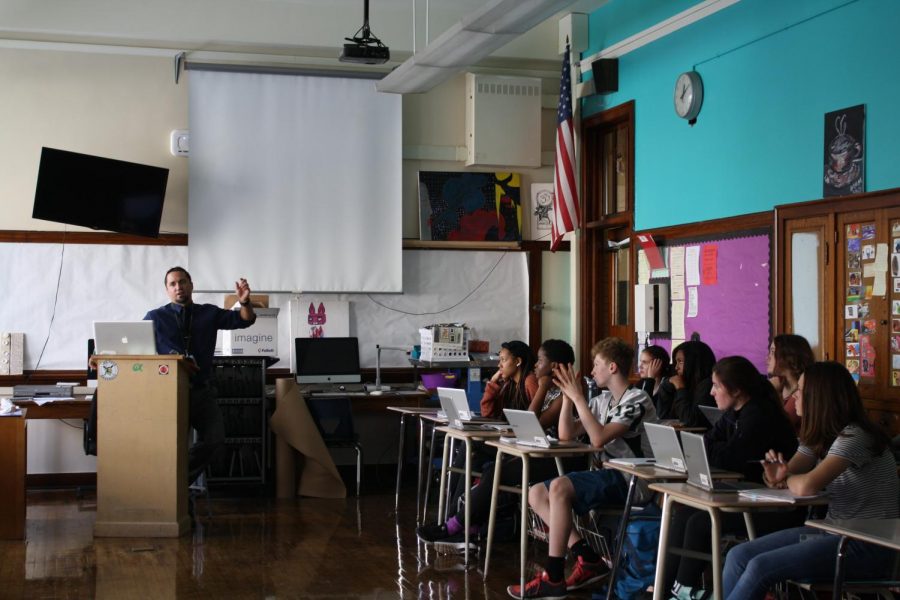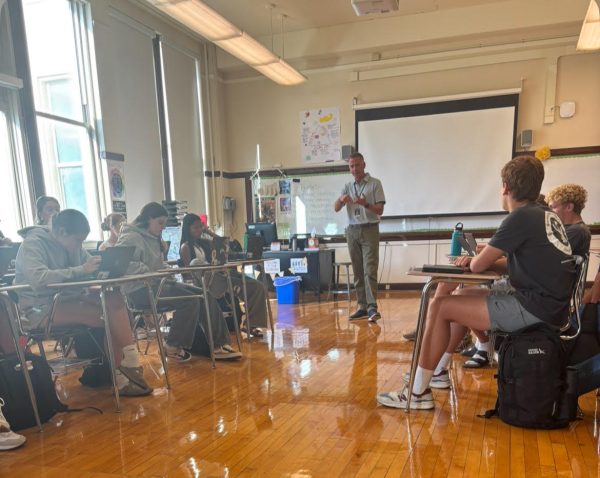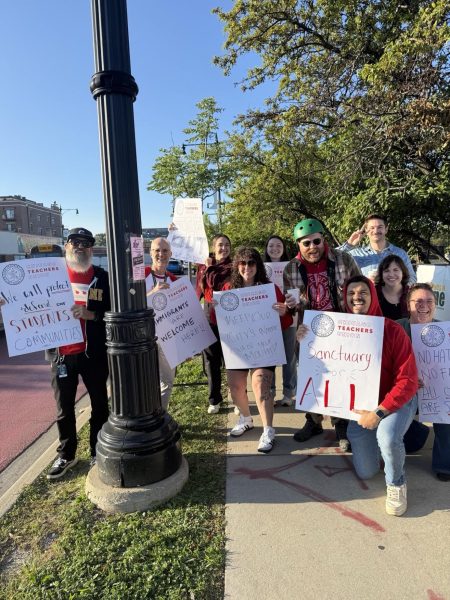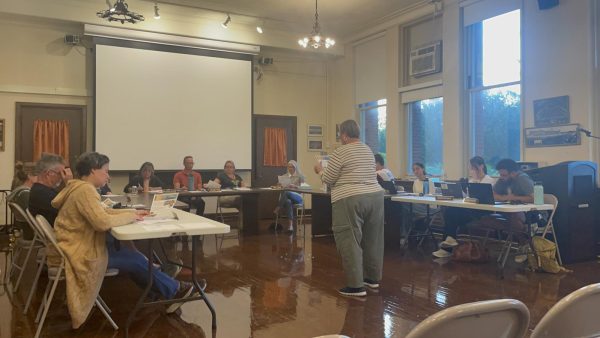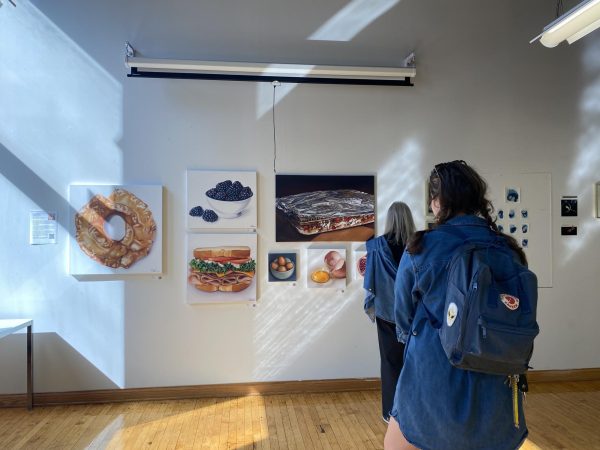Omega: ‘Forging a path’ for cross-curricular programs
Mr. Telles’ Omega literature class discusses culture and their novel “Nectar in a Sieve.”
With over 50 STEM courses available, a question arises. What about the students who don’t want a STEM-based education?
Emilio Garcia, Div. 082, asked the same question. He heard about the Alpha STEM program from his older brother who had attended Lane. However, he wasn’t confident about pursuing a STEM-based curriculum.
Garcia always had an affinity for writing and creating stories. He wanted a program similar to Alpha, but instead centered on reading and history.
When he filled out his application, Garcia saw the Omega Istoria program and thought, “Why not?”
As of the 2016-17 school year, Lane has opened a new curriculum program to students. Similar to Alpha, Omega Istoria is a cross-curricular program. The Omega program is the Alpha program’s humanities-based counterpart.
Omega is a four year program in which humanities is emphasized through a collaboration between English and history classes.
Lane’s class of 2020 will be the first students to participate in the program. Currently, 50 students are enrolled to be the first class to graduate as an Omega Istoria student, according to Mr. Telles, one of Omega’s collaborators.
Mr. Gonzalez, an AP Capstone teacher and collaborator on the Omega program, said that while the recent emphasis on STEM learning is important, it is also crucial to place an emphasis on the humanities.
“Different types of students have different interests,” Gonzalez said. “We need to have a variety of curriculum paths to cater to all students.”
Telles had been pushing for the creation of the program.
“The Omega program was built for the kids in the school who aren’t centering on science,” Telles said. “The kids who dig the humanities — the readers, the writers, the performers. The kids who like history.”
Telles, Omega’s literature teacher, integrates components of history courses, such as AP Human Geography, in his lesson plans. By doing so, the Omega program reinforces cross-curricular learning.
Mr. Stepek, an AP Human Geography teacher and collaborator on the program, emphasized the importance of enriching history lessons with literature. By creating a cross-curricular course between English and history, Stepek hopes that the students will have “a much more rewarding experience.”
This resonates with Garcia, who is enthusiastic about the program’s literature component, which encourages students to explore humanities-based concepts.
“We’re able to discuss in our English class existential questions, like What is happiness? What kind of things would we need for it to be found in this society?” Garcia said. “It’s really nice that we’re able to delve into these types of questions on a more regular basis, rather than have them become the last final questions we would ever answer in our classes.”
According to Telles, one of the main goals of the Omega program is to get students to “take on the idea of learning for learning’s sake.” He plans on utilizing literature to help students improve communication, writing and research skills.
“What’s beautiful about history and how could we apply it to make this world better?” Telles asked. “That’s where I wanted to go with the program: for the students to make these meaningful authentic projects, where they are doing things that they care about and make a difference.”
Within the Omega program, students work on a humanities-based project of their choosing. According to the Omega curriculum site, these projects include multi-genre assignments, essays, and a detailed research report. By their fourth year, students will have chosen a thesis that they will defend.
There is a heavy emphasis on the students in the program being able to dictate their own education. Students have the liberty to choose the topic they want to pursue, as well as shape a new program.
“These pioneers in the Omega program, I want them to be like, ‘Hey this would be cool for us to do,’” Telles said. “I’ll tell them, ‘This is what Alpha does, should we do that? Should we do something different?’ I want to get them involved in helping to create what this is.”
Garcia said that the inclusion of students in creating the curriculum and the strong student-teacher relationship are his favorite thing about the program.
The contributors behind Omega expressed their hope for the program to become a model for future cross-curricular programs.
“That’s the exciting part about it,” Mr. Telles said. “We’re forging a path.”
Your donations directly fund the Lane Tech student journalism program—covering essential costs like website hosting and technology not supported by our school or district. Your generosity empowers our student reporters to investigate, write, and publish impactful stories that matter to our school community.
This website is more than a publishing platform—it's an archive, a research tool, and a source of truth. Every dollar helps us preserve and grow this resource so future students can learn from and build on the work being done today.
Thank you for supporting the next generation of journalists at Lane Tech College Prep!
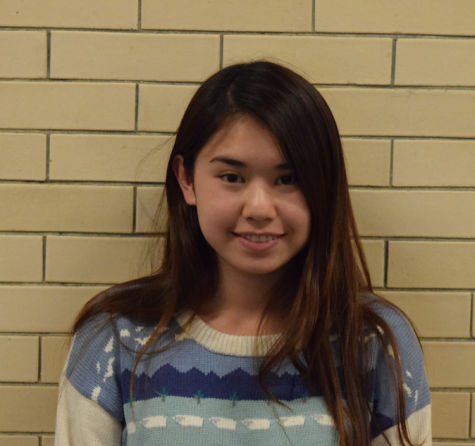
Brianna is Vietnamese, and was born and raised in Chicago. Her favorite past time activity is napping and eating. When she’s not doing either, she likes...

